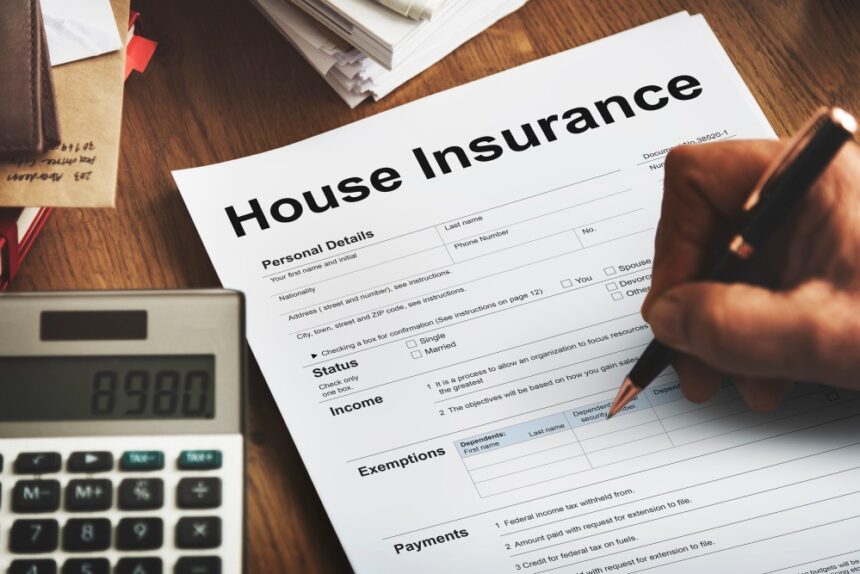Image by rawpixel.com on Freepik
Property insurance is a crucial aspect of financial planning, offering protection against potential losses related to property damage or theft. Whether you own a home, a business, or other valuable assets, property insurance ensures that your investments are safeguarded. In this blog post, we will explore the reasons why property insurance is essential, its importance, and the benefits it offers to individuals and businesses alike.
1. Understanding Property Insurance
Property insurance is a type of insurance policy that provides financial reimbursement to the owner or renter of a structure and its contents in the event of damage or theft. Common types of property insurance include homeowner’s insurance, renter’s insurance, flood insurance, and earthquake insurance. These policies are designed to cover the cost of repairs or replacement of the insured property and its contents, depending on the terms of the policy.
2. Why Do We Need Property Insurance?
A.Protection Against Natural Disasters
One of the primary reasons for property insurance is the protection it offers against natural disasters. Events like hurricanes, earthquakes, floods, and fires can cause significant damage to your property. Without insurance, the cost of repairing or rebuilding can be financially devastating. Property insurance provides the necessary coverage to repair or replace your home or business premises in the aftermath of such events.
- Advertisement -
B. Safeguarding Your Investment
For most people, buying a home or starting a business is one of the largest investments they will ever make. Property insurance ensures that this investment is protected. In the event of damage or loss, insurance can help cover the cost of repairs or rebuilding, allowing you to recover without suffering severe financial setbacks.
C. Coverage for Theft and Vandalism
Property insurance also covers theft and vandalism. If your property is burglarized or damaged by vandals, your insurance policy can reimburse you for the loss of belongings and the cost of repairs. This coverage is particularly important for businesses that may be targeted by thieves or vandals.
D. Liability Protection
Another essential aspect of property insurance is liability coverage. If someone is injured on your property, you could be held legally responsible for their medical expenses. Liability coverage within your property insurance policy can help cover these costs, protecting you from potentially expensive lawsuits.
E. Meeting Mortgage and Lease Requirements
Most mortgage lenders and landlords require property insurance as a condition of the loan or lease. This requirement ensures that their investment in the property is protected. By having insurance, you not only protect yourself but also fulfill legal obligations and avoid potential conflicts with lenders or landlords.
3. The Importance of Property Insurance
A. Financial Security
One of the most significant benefits of property insurance is the financial security it provides. Life is unpredictable, and unforeseen events can happen at any time. Property insurance ensures that you are not left in a financial bind if your property is damaged or destroyed. It provides peace of mind, knowing that you have a safety net to fall back on in times of crisis.
B. Preserving Your Standard of Living
In the event of significant damage to your home, property insurance can help you maintain your standard of living. Many policies include additional living expenses (ALE) coverage, which pays for temporary housing and other living costs if your home is uninhabitable due to a covered event. This coverage ensures that you can continue your life with minimal disruption while your home is being repaired or rebuilt.
C. Protecting Your Business
For business owners, property insurance is vital for protecting their livelihood. A business property insurance policy can cover the cost of repairing or replacing damaged buildings, equipment, and inventory. Additionally, many policies include business interruption insurance, which compensates for lost income if your business is forced to close temporarily due to a covered event. This coverage is crucial for ensuring that your business can survive and recover from a disaster.
D. Encouraging Responsible Property Management
Having property insurance encourages responsible property management. Knowing that you have invested in insurance, you are more likely to take proactive steps to maintain and protect your property. This might include regular maintenance, installing security systems, and taking precautions against potential hazards. By reducing the risk of damage, you can lower your insurance premiums and ensure that your property remains in good condition.
E. Peace of Mind
Perhaps the most valuable aspect of property insurance is the peace of mind it provides. Knowing that you are protected against potential losses allows you to focus on other aspects of your life, without the constant worry of what might happen if disaster strikes. Whether you are a homeowner, renter, or business owner, having property insurance gives you the confidence to invest in your property and enjoy it to the fullest.
4. Types of Property Insurance
A. Homeowner’s Insurance
Homeowner’s insurance is the most common type of property insurance. It provides coverage for your home and its contents in the event of damage or loss. Policies typically cover a range of risks, including fire, theft, vandalism, and certain natural disasters. Homeowner’s insurance also includes liability coverage, protecting you if someone is injured on your property.
B. Renter’s Insurance
Renter’s insurance is designed for tenants who want to protect their belongings. While the property owner is responsible for insuring the building, renter’s insurance covers the tenant’s personal property and provides liability coverage. This type of insurance is essential for renters who want to ensure that their possessions are protected.
C. Commercial Property Insurance
Commercial property insurance is designed for businesses and covers the physical assets of the company, including buildings, equipment, and inventory. This insurance is crucial for protecting the financial stability of a business in the event of damage or loss. Many policies also include business interruption coverage, which helps the business recover lost income during a period of closure.
D. Flood and Earthquake Insurance
Standard homeowner’s insurance policies typically do not cover flood and earthquake damage. Therefore, if you live in an area prone to these natural disasters, it is essential to purchase additional coverage. Flood and earthquake insurance provide protection specifically for these events, ensuring that you are not left without coverage in the event of a disaster.
E. Landlord Insurance
Landlord insurance is designed for property owners who rent out their properties. This type of insurance covers the building itself, as well as any fixtures, fittings, and furnishings provided by the landlord. It also includes liability coverage, protecting the landlord if a tenant or visitor is injured on the property.
5. Factors to Consider When Choosing Property Insurance
A. Coverage Limits
When choosing a property insurance policy, it is important to consider the coverage limits. Ensure that the policy provides enough coverage to fully replace your property and belongings in the event of a total loss. Underestimating the value of your assets can leave you underinsured and facing significant out-of-pocket expenses.
B. Deductibles
The deductible is the amount you must pay out of pocket before your insurance coverage kicks in. Higher deductibles typically result in lower premiums, but it is essential to choose a deductible that you can afford to pay in the event of a claim. Balancing the deductible with your financial situation is key to finding the right policy.
C. Exclusions
All insurance policies have exclusions, which are specific events or circumstances that are not covered. It is crucial to read the policy carefully and understand what is excluded. If you live in an area prone to certain risks, such as floods or earthquakes, make sure to purchase additional coverage to protect against those events.
D. Discounts and Bundling
Many insurance companies offer discounts for bundling multiple policies together, such as combining home and auto insurance. Additionally, you may be eligible for discounts based on factors such as home security systems, fire alarms, and other safety features. Take advantage of these discounts to lower your premiums.
E. Insurance Company Reputation
When selecting a property insurance provider, consider the company’s reputation for customer service and claims handling. A company with a strong reputation is more likely to provide prompt and fair claims processing, ensuring that you receive the support you need when it matters most.
6. Conclusion
Property insurance is an essential part of protecting your assets and ensuring financial security. Whether you are a homeowner, renter, or business owner, having the right insurance coverage is crucial for safeguarding your property against unexpected events. From natural disasters to theft and liability, property insurance offers comprehensive protection that allows you to focus on enjoying your property with peace of mind. By understanding the importance of property insurance and choosing the right policy for your needs, you can protect your investment and secure your future.

